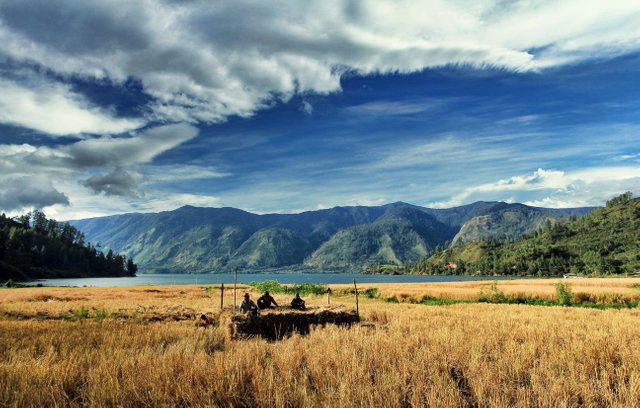
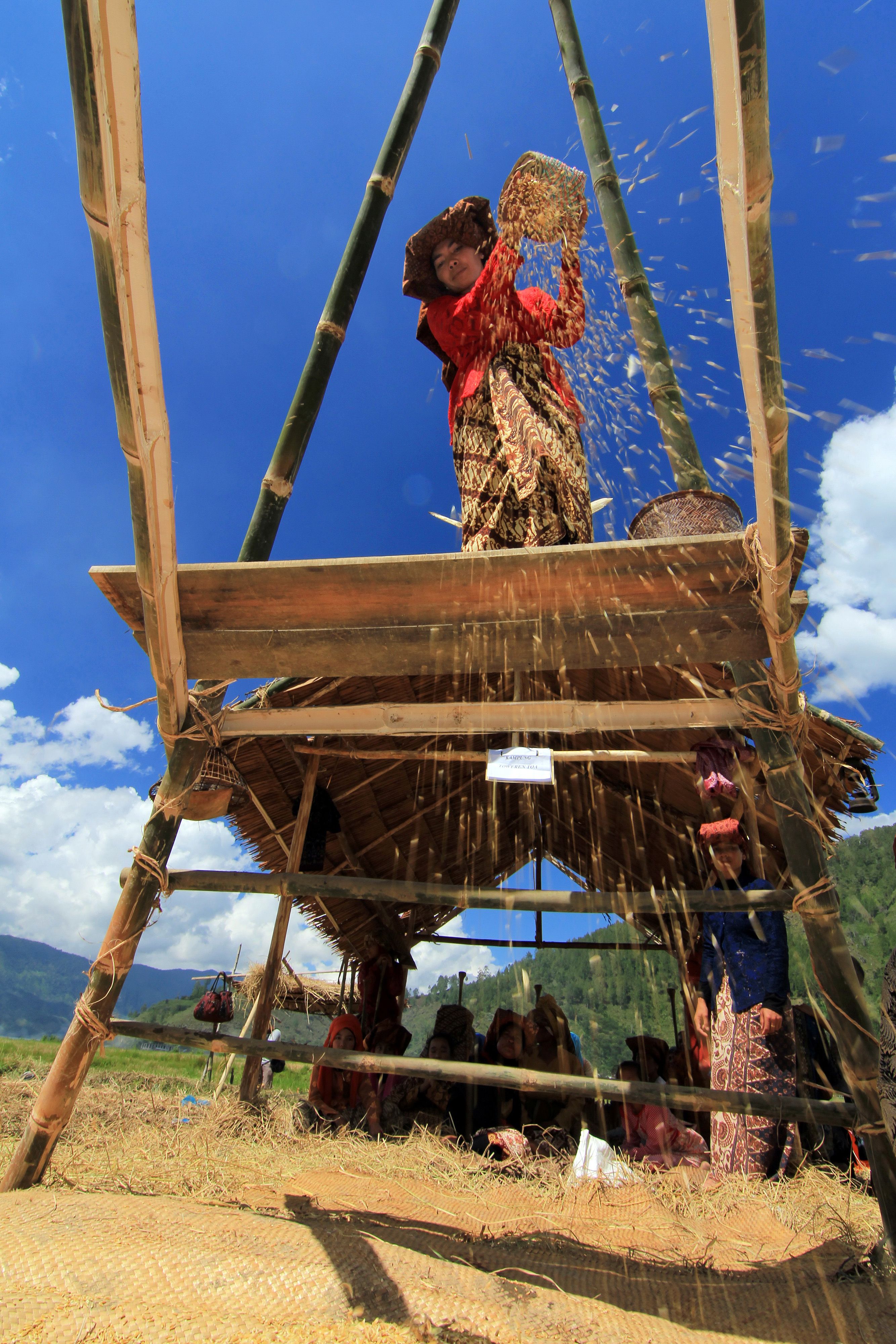
Gayo is famous for its customs and culture which is still very much inherent in the daily life of the people in the country over the cloud. One tradition that is still very awake in Gayo society is "Rice Harvest Tradition" [Resam Munoling].
Gayo juga terkenal dengan adat dan budayanya yang masih sangat melekat dalam kehidupan sehari-hari masyarakat di negeri atas awan ini. Salah satu tradisi yang masih sangat terjaga didalam masyarakat Gayo adalah “Tradisi Panen Padi” [Resam Munoling].
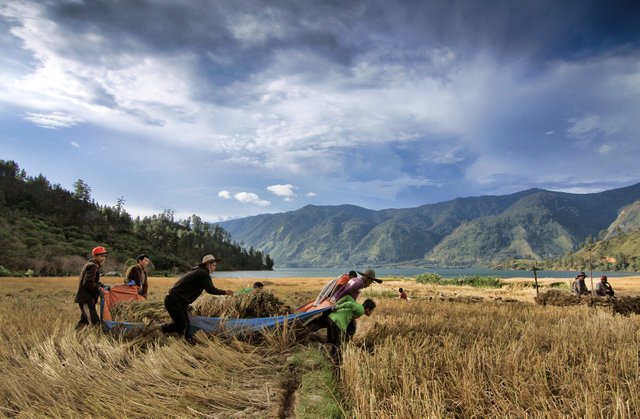
Although advances in agricultural processing technology have eroded the deeply rooted harvesting tradition in farming communities in Indonesia, but traditionally rice harvesting tradition still persists in Gayo society. This rice harvest tradition is known as "Resam Munoling". Munoling [cutting rice], Mujerang [cooking special dishes for consumption], Nos Seladang [building temporary shacks for rice warehouses], Mubenuh [transferring harvested rice to the field], Natur [Matching harvested rice to the field], Mujik [ threshing the grains of rice with the feet], Munejes [separating the grains of rice with straw] and Munangin [separating rice grains of good quality and ugly by harnessing the wind].
Walaupun kemajuan teknologi pengolahan hasil pertanian telah mengikis tradisi panen yang sudah mengakar dalam masyarakat tani di Indonesia tetapi tradisi panen padi secara tradisional masih tetap bertahan dalam kehidupan masyarakat Gayo. Tradisi panen padi ini dikenal dengan istilah “Resam Munoling”. Munuling [memotong padi], Mujerang [memasak masakan khas untuk dikonsumsi], Nos Seladang [membangun gubuk sementara sebagai gudang padi], Mubenuh [memindahkan padi yang sudah dipanen ke seladang], Natur [menata padi yang sudah dipanen ke seladang], Mujik [merontokkan bulir-bulir padi dengan menggunakan kaki], Munejes [memisahkan butiran padi dengan jerami] dan Munangin [memisahkan butiran padi yang berkualitas bagus dan jelek dengan memanfaatkan angin].
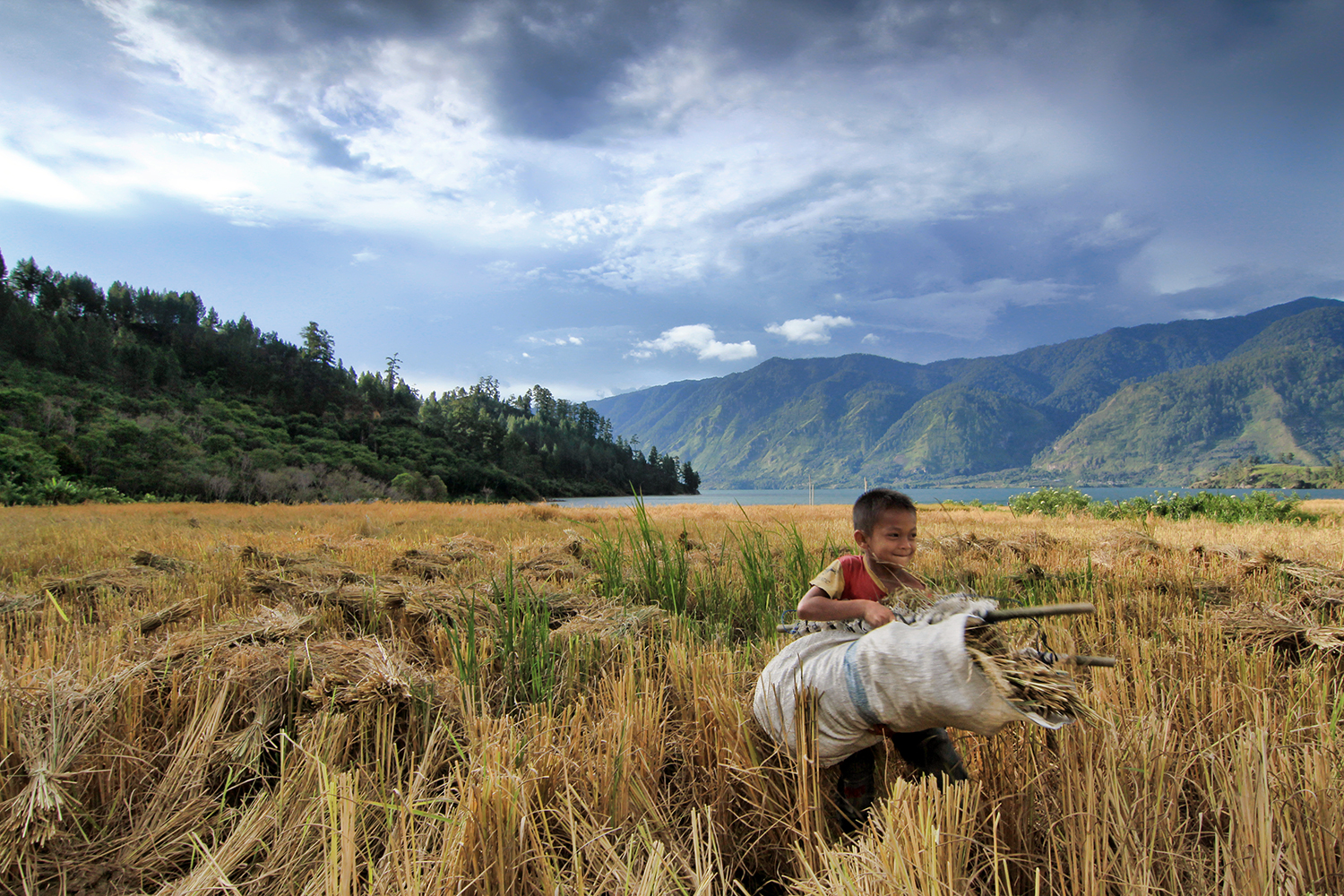
In the tradition of planting rice [resam berume] in Tanoh Gayo, there are customs that have been valid for generations ie plowing the fields until ready to plant and sowing the seeds is the duty of men. While removing the seeds, planting seeds in the rice fields, weeding until harvesting is the task of women. Collecting crops from the middle of rice fields, transporting them to the pondokan, and threshing the grain of rice with the mastication of [mujik] is the duty of men. Then, to menganginkan [munangin] is to separate the pithy head from the blank grain into the task of women.
Dalam tradisi menanam padi [resam berume] di Tanoh Gayo, terdapat kebiasaan yang sudah berlaku secara turun temurun yaitu membajak sawah sampai siap tanam serta menyemai benih merupakan tugas kaum laki-laki. Sedangkan mencabut bibit, menanam bibit dalam petak sawah, menyiangi sampai memanen merupakan tugas kaum perempuan. Mengumpulkan hasil panen dari tengah sawah, mengangkutnya ke pondokan, dan merontokkan bulir padi dengan memijaknya [mujik] merupakan tugas laki-laki. Lalu, untuk menganginkan [munangin] yaitu memisahkan bulir bernas dari bulir hampa menjadi tugas perempuan.
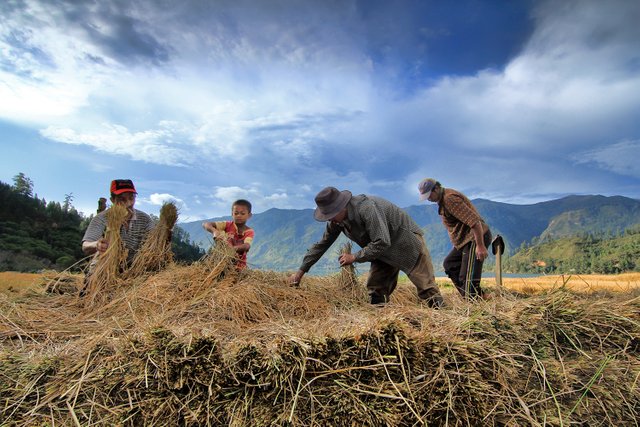
Remarkably, it turns out that munoling resol becomes a meeting momentum of young people. In Gayo custom, young people are taboo to meet every place. They will be able to meet with mutual help in the munoling tradition. Young people can greet each other, glance, joke until they get acquainted.
Hebatnya lagi, ternyata resam munoling itu menjadi momentum bertemunya muda-mudi. Dalam adat Gayo, muda-mudi tabu untuk bertemu disembarang tempat. Mereka akan bisa bertemu dengan ikut gotong royong dalam tradisi resam munoling. Kaum muda-mudi bisa saling menyapa, melirik, bercanda sampai berkenalan.
How to get acquainted unique, the young man greeting through the young woman's aunt. Then, if the young woman pleases, she will send certain codes written in chalk on a betel leaf. Then, the betel leaf is inserted in a "raden". The rice strains were deliberately tied up by the young woman over the clump of rice.
Cara berkenalannya tergolong unik, si pemuda menitip salam melalui bibi si pemudi. Kemudian, jika si pemudi berkenan, dia akan menitip kode-kode tertentu yang ditulis dengan kapur diatas selembar daun sirih. Kemudian, daun sirih itu diselipkan dalam “raden” [rangkaian padi yang sudah disabit/dipotong]. Rangkaian padi itu sengaja diikat oleh si pemudi diatas rumpun padi.
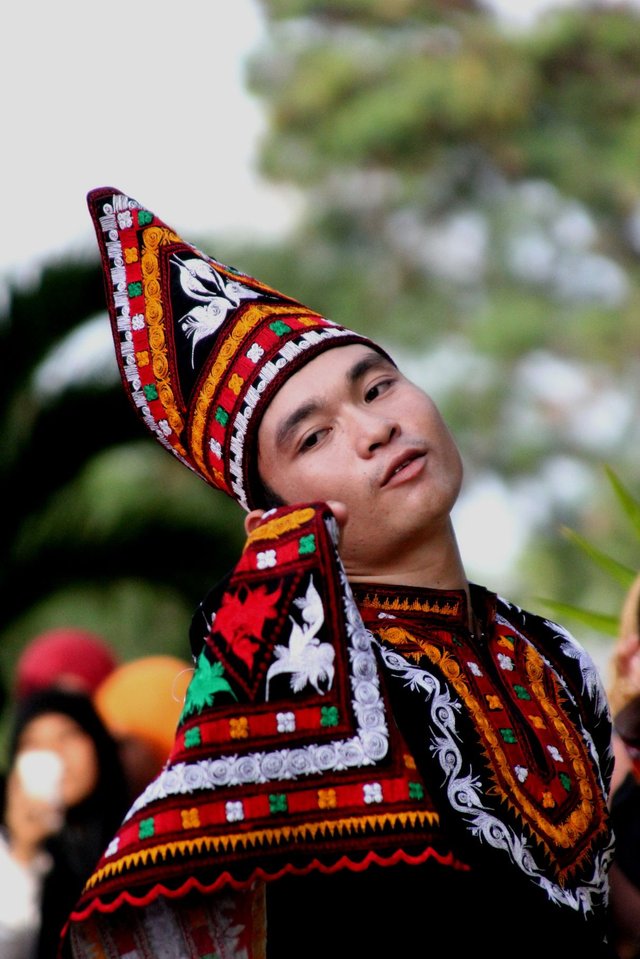
When the young man collects the disabited results [cut off] by the young woman from the middle of the rice field, the sequence is caught up in rice. If the young man pulls the chain, his fingers will be cut. In essence, Likes the young man to pay special attention to the [raden] rice strain because in it there is a letter written on a sheet of betel leaf. When the young man finds a message on the betel leaf, the girl and friends from a distance, then squeals with yells: ahoiiiii ... .iiiiiiwww. The screech is called "mulawi", a sign that the young man already knows that "tit for tat". That is, it turns out behind the local wisdom resam munoling designed by our ancestors, they provide space for young people.
Saat si pemuda mengumpulkan hasil panen yang sudah disabit [dipotong] oleh si pemudi itu dari tengah sawah, rangkaian itu tersangkut dirumpun padi. Kalau si pemuda memaksa menarik rangkaian itu, bisa jadi jemarinya akan teriris. Intinya, supaya si pemuda memberi perhatian khusus terhadap rangkaian padi [raden] itu karena didalamnya ada surat yang ditulis pada selembar daun sirih. Manakala si pemuda menemukan pesan pada lembaran daun sirih itu, si pemudi dan teman-temannya memantau dari kejauhan, lalu memekik dengan yel-yel: ahoiiiii….wiiiiiiwww. Pekikan itu disebut dengan “mulawi”, tandanya si pemuda sudah tahu bahwa “gayung bersambut”. Begitulah, ternyata dibalik kearifan lokal resam munoling yang dirancang oleh nenek moyang kita, mereka menyediakan ruang untuk kaum muda-mudi.
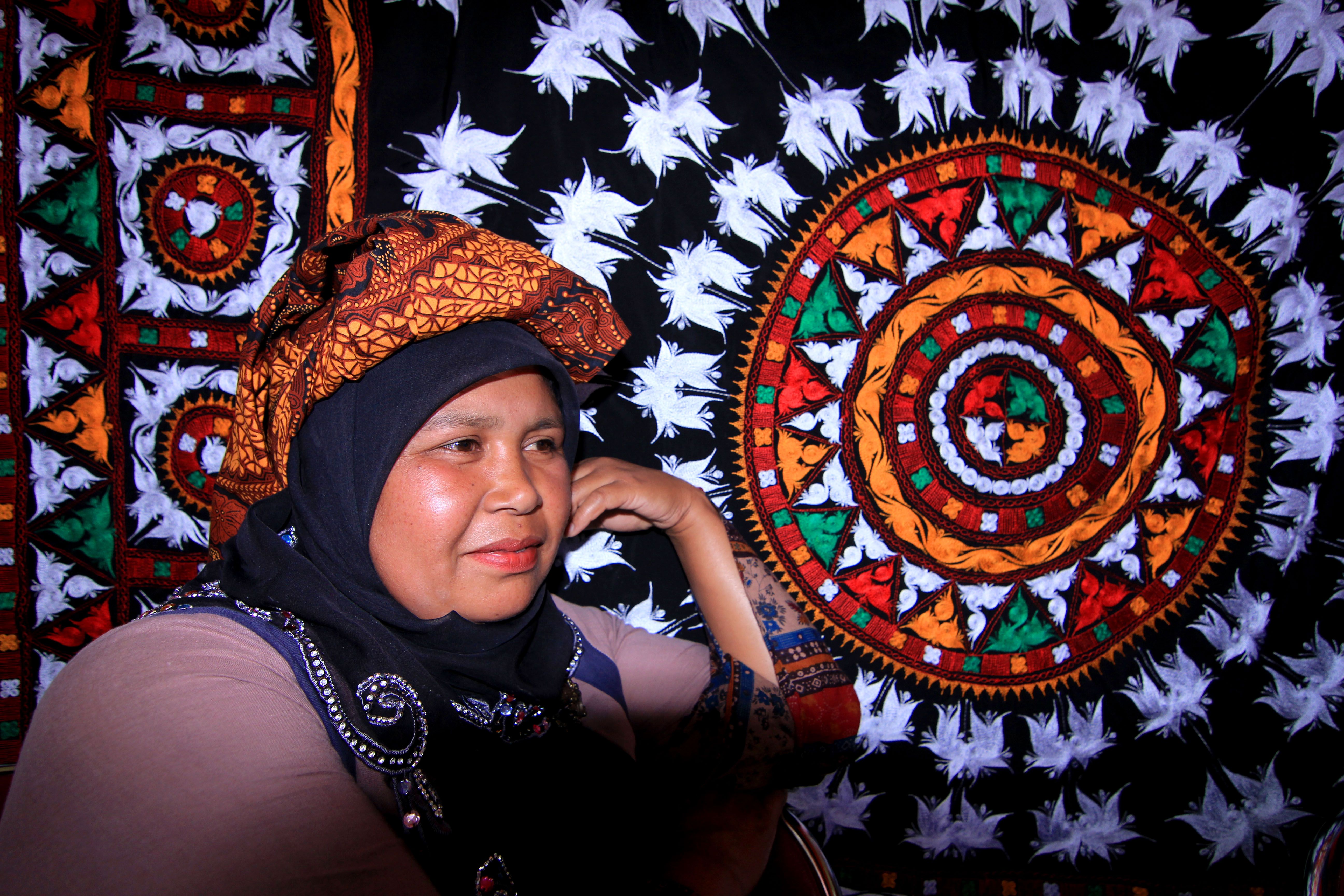
In the Gayo community itself, those who understand the munoling tradition are very few. The local wisdom of munoling is almost incapable of surviving the current agricultural technology. Concerns about the loss of customs of munoling resolute are also felt by the Central Aceh Government, traditional and cultural figures and the people there so that since a few years ago the Central Aceh Government through the Central Aceh Tourism Office regularly organized an activity intended to conserve the dam and introduce again this custom is called the Rice Harvest Festival [Resam Munoling].
Dikalangan masyarakat Gayo sendiri, mereka yang memahami tradisi resam munoling sudah sangat sedikit. Kearifan lokal resam munoling hamper tak mampu bertahan digerus oleh teknologi pertanian masa kini. Kekhawatiran akan hilangnya adat tradisi resam munoling ini juga dirasakan oleh Pemda Aceh Tengah, tokoh-tokoh adat dan budaya serta masyarakat disana sehingga sejak beberapa tahun yang lalu Pemda Aceh Tengah melalui Dinas Pariwisata Aceh Tengah setiap tahunnya rutin menyelenggarakan satu kegiatan yang dimaksudkan untuk melestarikan dam memperkenalkan kembali adat ini yang diberi nama Festival Panen Padi [Resam Munoling].
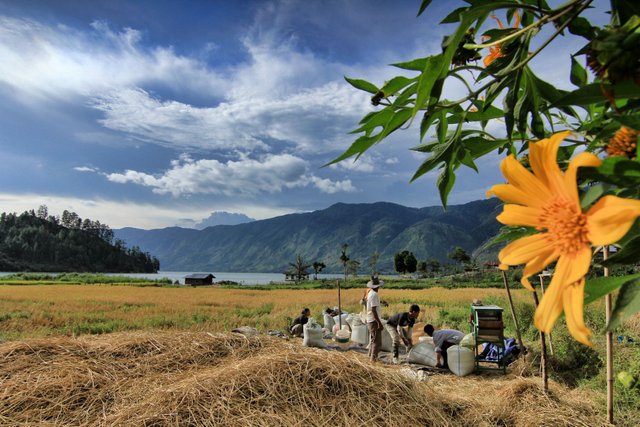
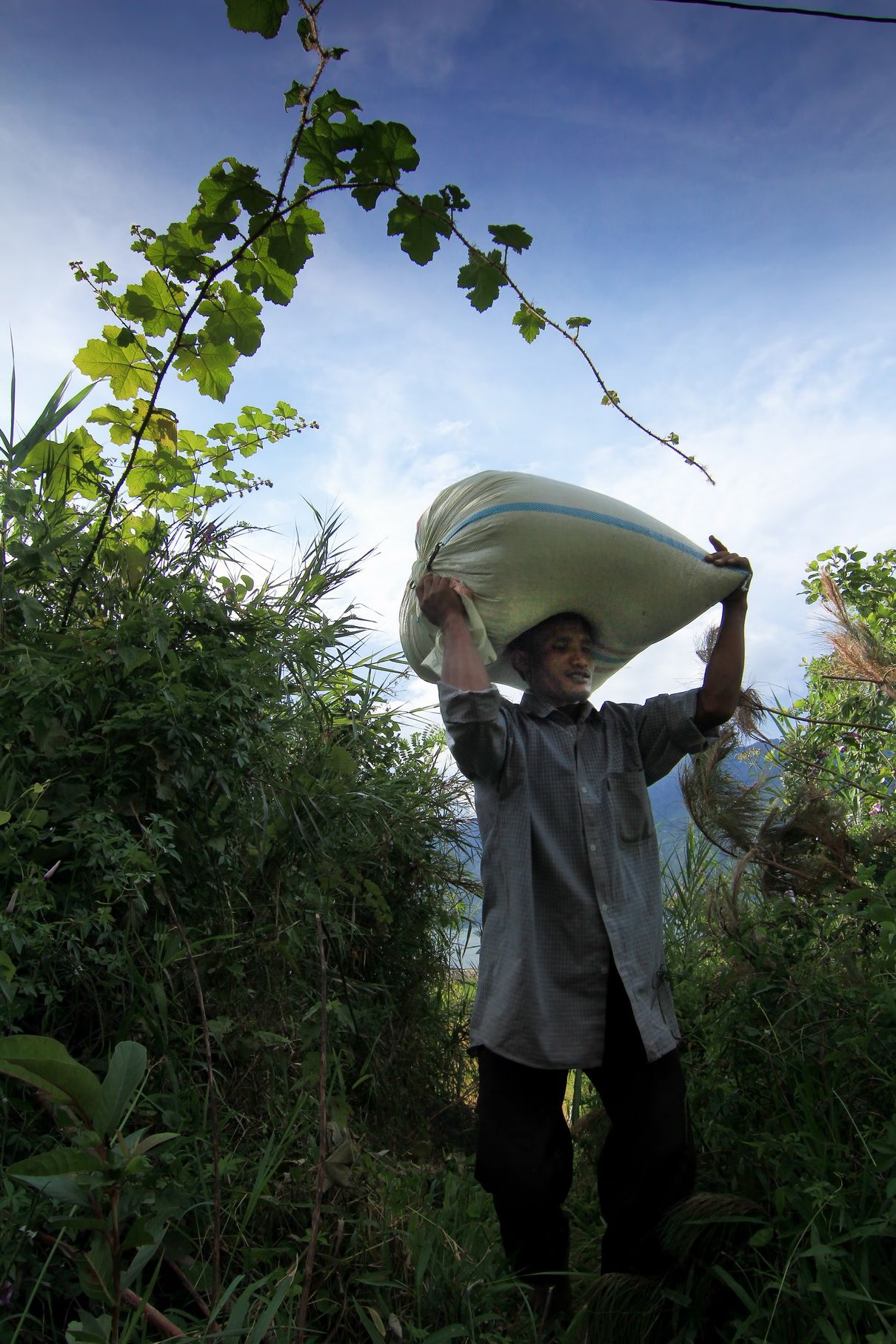
Congratulations @yoeozar! You received a personal award!
You can view your badges on your Steem Board and compare to others on the Steem Ranking
Do not miss the last post from @steemitboard:
Vote for @Steemitboard as a witness to get one more award and increased upvotes!
Downvoting a post can decrease pending rewards and make it less visible. Common reasons:
Submit
Congratulations @yoeozar! You received a personal award!
You can view your badges on your Steem Board and compare to others on the Steem Ranking
Do not miss the last post from @steemitboard:
Vote for @Steemitboard as a witness to get one more award and increased upvotes!
Downvoting a post can decrease pending rewards and make it less visible. Common reasons:
Submit